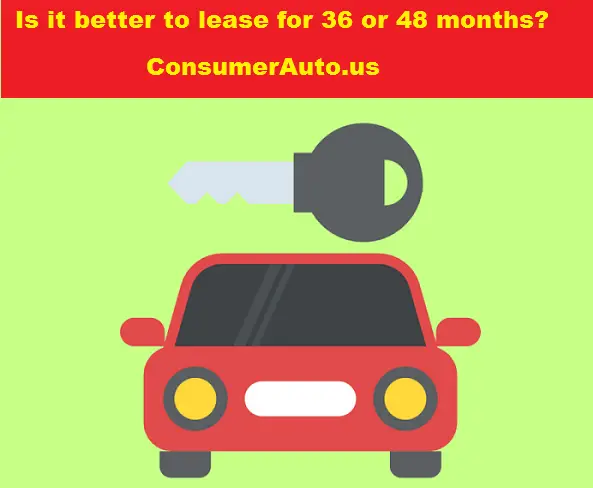In the realm of car leasing, the decision between a 36-month lease and a 48-month lease can significantly impact your driving experience and financial outlook. Our comprehensive guide delves into the intricacies of both options, providing you with the information needed to make an informed decision that aligns with your preferences and priorities.
Understanding the Fundamentals of Car Leasing
Before delving into the specifics of lease terms, it’s essential to grasp the fundamental concept of car leasing. Leasing allows you to enjoy a new vehicle without the long-term commitment of ownership. The leasing period typically ranges from 24 to 48 months. During this time, you make monthly payments to utilize the car, but you don’t own it once the lease concludes. Leasing offers a host of advantages, including lower monthly payments and the opportunity to drive a new vehicle every few years.
Factors to Consider When Choosing a Lease Term
Monthly Payment Dynamics
The cornerstone of any lease agreement is the monthly payment. It’s crucial to comprehend how lease terms influence these payments. Generally, a 36-month lease entails higher monthly payments compared to a 48-month lease for the same vehicle. However, it’s important to note that the seemingly lower monthly payment of a 48-month lease might translate to a higher overall cost due to the extended term.
Depreciation and Resale Value
Car depreciation plays a pivotal role in lease terms. A shorter 36-month lease might result in less depreciation, potentially leading to a higher resale value at the end of the lease. Conversely, a longer 48-month lease may expose the vehicle to greater depreciation, impacting its eventual resale value.
Total Cost Analysis
When evaluating lease terms, taking into account the total cost over the leasing period is paramount. This encompasses monthly payments, down payments, taxes, fees, and potential charges for excessive mileage or wear and tear. Comparing the total cost of a 36-month lease against that of a 48-month lease empowers you to align your choice with your budgetary constraints.
Mileage Considerations
Most lease agreements stipulate mileage limitations. It’s imperative to assess your driving habits and select a lease term that accommodates your anticipated mileage. Opting for a longer lease might provide a higher mileage allowance, mitigating the risk of incurring charges for excess mileage.
Wear and Tear Impact
The state of the vehicle at the lease’s conclusion can influence your overall cost. With an extended 48-month lease, the car could experience greater wear and tear, potentially resulting in additional charges. While proper maintenance is essential regardless of the lease term, shorter leases often offer a more manageable timeframe for maintaining the vehicle’s condition.
Flexibility vs. Stability
Factors such as future plans and potential lifestyle changes also come into play. A shorter 36-month lease offers enhanced flexibility, enabling more frequent upgrades and catering to evolving circumstances. Conversely, a 48-month lease provides stability and predictability in monthly payments, appealing to those seeking consistency.
Advantages of a 36-Month Lease
Lower Total Cost
Opting for a 36-month lease can yield a reduced overall cost in comparison to a 48-month lease. Although monthly payments may be higher, the shorter lease duration can result in diminished depreciation and potentially lower fees.
More Frequent Upgrades
For individuals who relish the latest automotive technology, a 36-month lease holds appeal. It provides the opportunity for more frequent upgrades, allowing you to indulge in the latest features and designs the automotive world has to offer.
Warranty Coverage Benefits
A 36-month lease typically falls within the manufacturer’s warranty period. This translates to potential coverage for significant repairs during the lease term, instilling peace of mind and potentially saving you money on maintenance expenses.
Advantages of a 48-Month Lease
Lower Monthly Payments
If budget constraints are your foremost concern, a 48-month lease could be the optimal choice. While the total cost over the lease period may be higher, the extended duration leads to lower monthly payments, rendering it a more affordable option for many.
Stability and Predictability
The extended duration of a 48-month lease brings about the benefit of long-term stability in monthly payments. With a fixed payment over a more extended period, you can strategically plan and manage your finances more effectively.
Negotiation Potential
Longer lease terms often provide more room for negotiation. Dealerships might be more amenable to discussing terms for a 48-month lease, potentially resulting in additional savings or incentives for you.
FAQs: Navigating the World of Car Leasing
To ensure a comprehensive understanding, let’s address some common questions related to car leasing:
Is leasing consistently more economical than buying?
While leasing frequently entails lower monthly payments than purchasing, the overall cost varies based on factors like lease terms, vehicle type, and individual preferences.
Are lease terms open to negotiation?
Yes, lease terms are negotiable. It’s advisable to conduct research and be well-prepared to negotiate elements such as capitalized cost, money factor, and other terms to secure a favorable lease arrangement.
What happens if I surpass the mileage limit?
Exceeding the mileage limit can lead to additional charges at lease end. Accurate mileage estimation is essential, and choosing a lease term aligned with your driving habits is vital.
Can I terminate a lease early due to changing circumstances?
Yes, early lease termination is possible, but it often incurs fees. Reviewing the lease agreement for early termination clauses and potential costs is crucial.
How does lease duration impact insurance costs?
Insurance costs can fluctuate with lease duration. Shorter leases might entail lower insurance costs due to the vehicle’s higher resale value, while longer leases might incur slightly higher costs due to increased depreciation.
Are there tax advantages to longer lease terms?
Longer leases might offer specific tax benefits for businesses, though individual circumstances vary. Consulting a tax professional is recommended for accurate guidance.
Can I customize a leased vehicle?
Most lease agreements limit significant modifications or customizations. Minor alterations might be permissible, but it’s crucial to thoroughly review the lease terms.
Is maintenance cost included in a lease?
Routine maintenance generally falls under the lessee’s responsibility. However, certain leases offer maintenance packages for an additional fee.
What end-of-lease fees might arise?
End-of-lease charges encompass excess mileage fees, wear and tear costs, and disposition fees. Familiarizing yourself with the lease agreement will provide clarity on potential charges.
Does lease term choice affect credit requirements?
Lease terms can influence credit prerequisites. Longer terms might result in slightly less stringent credit requirements due to lower monthly payments.
In Conclusion
The choice between a 36-month and a 48-month lease demands meticulous consideration of various factors. Balancing the advantages of more frequent upgrades and potentially lower costs with the stability and affordability of extended terms is paramount. By thoughtfully weighing your unique circumstances against the pros and cons of each option, you’ll be better equipped to make an informed choice for your car leasing journey.





